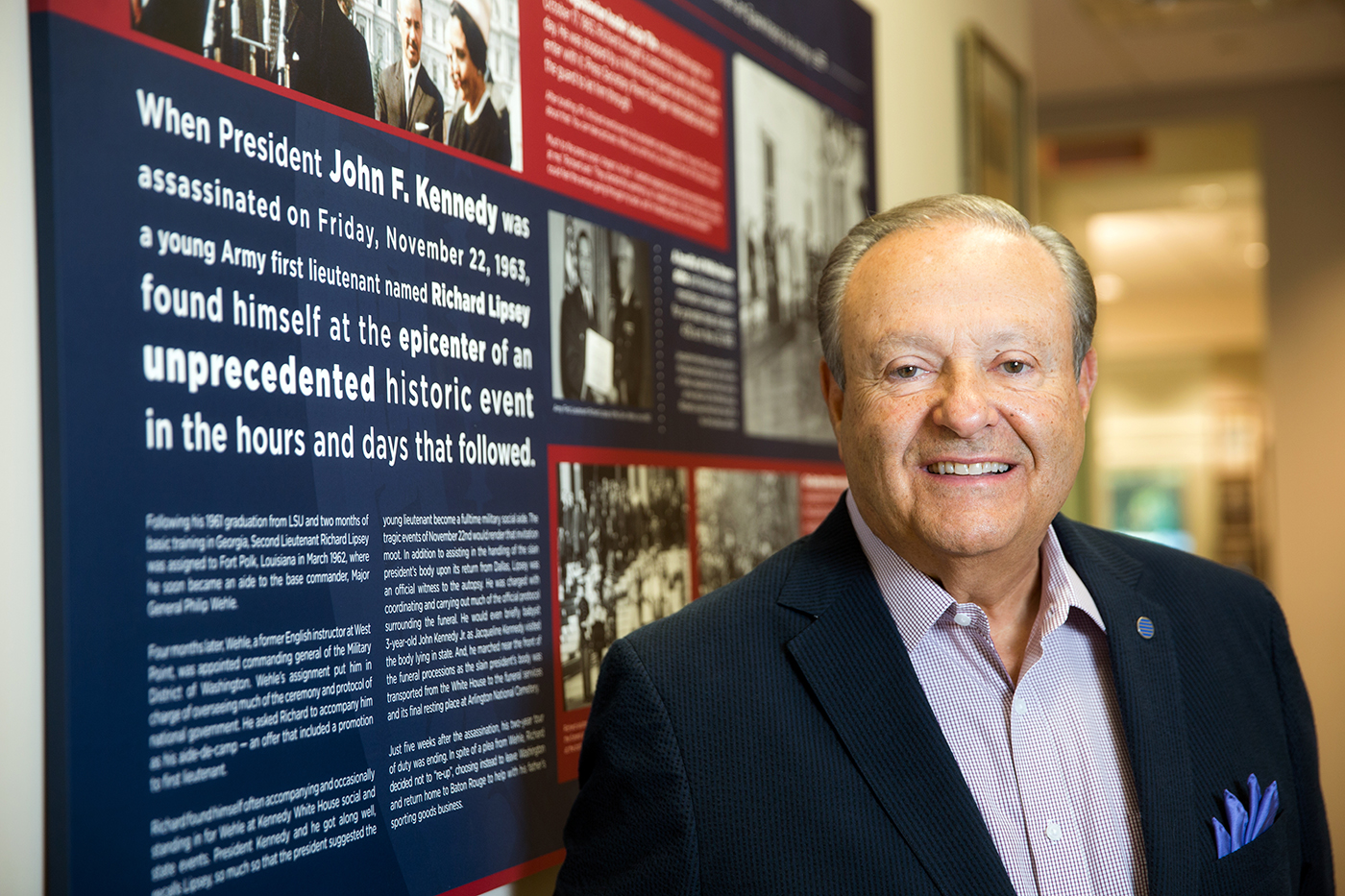
Richard Lipsey recalls being present for President John F. Kennedy’s autopsy
At age 77, Richard Lipsey has seen it all. The Baton Rouge native has lived many lives, serving in the U.S. Army, working as aide to the commanding general of the Military District of Washington and even bearing witness to the Aug. 28, 1963, March on Washington. Today, he is the chairman of the country’s leading firearms distributor, Lipsey’s, based here in Baton Rouge.
But no amount of experience could have prepared him for Nov. 22, 1963, the day his life—and the lives of every American—changed forever. We spoke with Lipsey about his experience working for President John F. Kennedy, witnessing the autopsy following his assassination and what life is like after being present at such a historic moment.
How did you get involved with working for President John F. Kennedy, and ultimately, being present at his autopsy?
|
|
I was 22 or 23, freshly graduated from LSU, when I became the aide to the commanding general of the Military District of Washington, Maj. Gen. Philip Wehle. He was in charge of all the ceremonial duties of Washington, which included state funerals. When the president was assassinated, he was in charge of the funeral. The body was brought back to Washington, and we took it to the naval hospital in Bethesda for the autopsy. Gen. Wehle went upstairs with Jacqueline Kennedy to start planning the funeral. He told me, “Don’t leave the body.” I went into the autopsy room when the body came around, and I stayed all during the autopsy, and then afterwards when the funeral home came in to restore the body. It was actually a rather calm scene, not the madhouse that is sometimes portrayed in movies and television.
What was it like for you, at such a young age, to witness the autopsy of a sitting president?
I had never seen a dead man before. So, the first dead man I saw was the president of the United States. It was absolutely an incredible experience, one that today seems sort of unimaginable. I was thrust into that situation 53 years ago, and it’s an experience you never forget.
So, do the details stick with you forever, too? For example, what the room looked like and what he looked like.
Not at first, because the first 15 years after I witnessed the autopsy, I was sworn to secrecy under the National Secrets Act and the State Department. I wasn’t able to speak about it for all that time. Everything doesn’t come back to you immediately. But, after a while, I could picture the room, picture what I saw and what I heard. Sure, there’s still fuzzy memories of a few things, but picturing that body lying there is something emblazoned in my memory.
What’s the detail you remember most about that day? The one you can’t get out of your head?
After the autopsy, we started preparing the body. We helped put the body back together, as you would after an autopsy. Then, I helped the funeral home guys pick up the president’s body, dress him and put him in his coffin. During the autopsy, Jackie had told the general which clothes she would like the president buried in. Those are moments to remember.
What were you thinking at the time, and did you ever think about what that day would mean to you years from then?
At the time it was such a shock to me and the nation that the president had been assassinated. You’re just thinking about your job and what you have to do. It’s a great responsibility that I and my office had. I guess I just felt like, here I am at 23 or 24, trying to do what my boss is telling me to do. Telling myself, “Don’t screw this up.” You don’t really get the chance to think about how it will affect you in the future.
What are your thoughts on all the conspiracy theories surrounding his death?
At the time, my concern was not is there a conspiracy, or even at that point, who had shot him. We heard that the president had been shot at 12:30 p.m. Central Time, and from that time on, our concern was getting prepared for the body to come back to Washington. Of course, now after all of these years, there’s still a lot of controversy about his death. There are hundreds of conspiracy theory groups in the U.S. alone that all have different ideas about who put Lee Harvey
Oswald up to shooting the president, were there multiple shooters and so on. But, just having been at the autopsy, there’s no question in my mind that there was a lone shooter, Lee Harvey Oswald. I don’t give too much credence to any conspiracy theories.
How do you look back on JFK as a president and as a person?
I can look back now and think about when Kennedy was president, and remember being there in Washington with him. He was a very educated man of great vision and foresight. In my opinion, he was one of the last true American leaders with real vision, and not just another person grabbing power. I’ve always tended to look back on him with great respect.
This article was originally published in the January 2017 issue of 225 Magazine.
|
|
|
